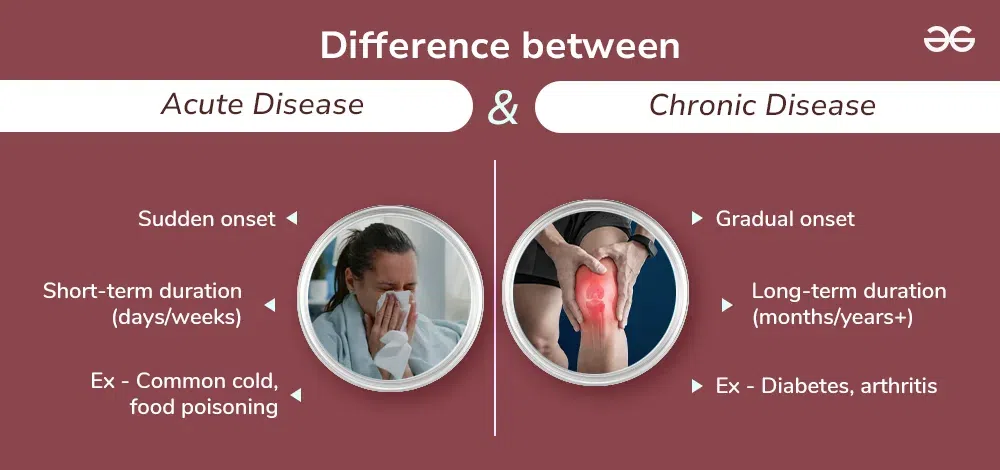An acute illness is a health condition that develops suddenly and lasts for a short period, usually a few days or weeks. Unlike chronic illnesses, which develop gradually and persist for months or years, acute illnesses typically resolve on their own or with appropriate treatment.
Common Causes of Acute Illnesses
- Viral Infections: These include the common cold, flu, and stomach viruses.
- Bacterial Infections: These can cause illnesses like strep throat, pneumonia, and urinary tract infections.
- Injuries: Accidents, falls, and other traumatic events can lead to acute injuries.
Common Symptoms of Acute Illnesses
- Fever
- Cough
- Sore throat
- Runny nose
- Muscle aches
- Headache
- Fatigue
- Nausea and vomiting
- Diarrhea
When to Seek Medical Attention
While many acute illnesses can be managed at home, it’s important to seek medical attention if you experience any of the following:
- Severe symptoms: High fever, severe pain, difficulty breathing, or persistent vomiting or diarrhea.
- Symptoms that worsen or don’t improve: If your symptoms worsen or don’t improve after a few days, consult a healthcare provider.
- Signs of dehydration: Decreased urine output, dry mouth, dizziness, or confusion.
Treatment for Acute Illnesses
Treatment for acute illnesses often involves:
- Rest: Getting plenty of rest can help your body recover.
- Hydration: Drinking plenty of fluids, such as water and clear broths, can help prevent dehydration.
- Over-the-counter medications: Pain relievers and fever reducers can help alleviate symptoms.
- Prescribed medications: In some cases, antibiotics or other medications may be necessary.
If you’re unsure about the best course of action, consult with a healthcare provider for proper diagnosis and treatment.




